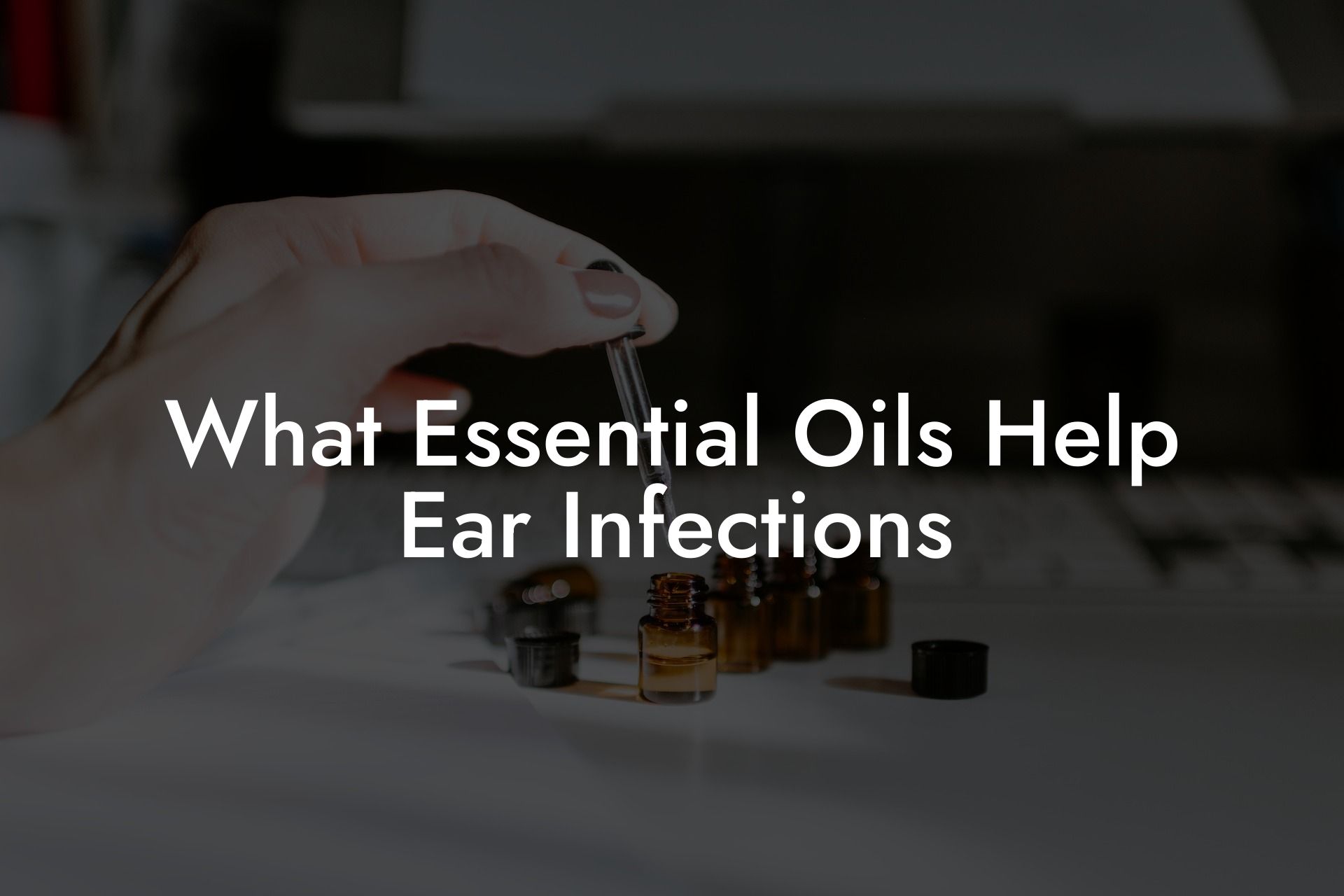Ear infections can be painful and frustrating to deal with, especially when traditional treatment methods don’t provide the relief you need. Essential oils have gained popularity in recent years for their versatility and natural approach to supporting various aspects of health and wellness. In this article, we will explore the potential benefits of essential oils for ear infections and how to use them safely and effectively.
Table of Contents
Understanding Ear Infections
Ear infections are commonly caused by bacteria or viruses, resulting in inflammation and pain in the middle ear. They can affect people of all ages, but children are particularly susceptible due to their developing immune systems and narrower Eustachian tubes.
Symptoms of an ear infection include pain, difficulty hearing, fever, and sometimes drainage from the affected ear. If left untreated, ear infections can lead to more severe complications, so it’s important to consult with a healthcare professional for proper diagnosis and treatment.
Essential Oils and Their Healing Properties
Essential oils are potent, concentrated plant extracts obtained through either steam distillation or cold pressing. They have been used for centuries for their aromatic and therapeutic properties. Some essential oils have natural antibacterial, antiviral, and anti-inflammatory properties, making them effective options for dealing with ear infections.
Best Essential Oils for Ear Infections
- Tea Tree Oil: Known for its antibacterial and antiviral properties, tea tree oil is often used for treating skin infections, respiratory issues, and other microbial infections, making it a viable option for ear infection relief.
- Lavender Oil: Lavender oil is praised for its calming and soothing effects, which can help alleviate the pain and inflammation caused by an ear infection. Its antimicrobial and anti-inflammatory properties may also help fight off infection-causing bacteria.
- Eucalyptus Oil: Eucalyptus oil is another popular choice for its antibacterial and anti-inflammatory properties. Its decongesting and cooling effects may also provide relief for ear pain and pressure.
- Roman Chamomile Oil: Roman chamomile has a soothing and calming effect on the nervous system, which can help ease the pain caused by an ear infection. It also possesses antibacterial and anti-inflammatory qualities.
- Garlic Oil: Garlic has long been recognized for its antimicrobial properties, making it an effective option for treating bacterial ear infections. Garlic oil can be made at home by infusing minced garlic in a carrier oil such as olive oil.
How to Safely Use Essential Oils for Ear Infections
It’s important to remember that essential oils are highly concentrated and should never be applied directly to the skin or inserted into the ear canal without proper dilution and guidance from a healthcare professional.
When using essential oils for ear infection relief, always follow these guidelines:
- Always use high-quality, pure essential oils from a reputable source.
- Dilute essential oils with a carrier oil (such as coconut oil, almond oil, or olive oil) before applying to the skin. Typically, a 1-2% dilution is recommended (1-2 drops of essential oil per 1 teaspoon of carrier oil).
- For a simple ear infection remedy, mix your chosen essential oil with a carrier oil and gently apply it around the affected ear, avoiding the ear canal. You can also apply a warm compress over the area to help promote absorption.
- Consult your healthcare practitioner before using essential oils, especially if you have any pre-existing health conditions, are pregnant or nursing, or are treating a young child.
What Essential Oils Help Ear Infections Example:
For a child experiencing an ear infection, you could create a gentle blend of 1 drop lavender oil, 1 drop chamomile oil, and 1 teaspoon of sweet almond oil. Apply the mixture around the outer ear, massaging lightly, and place a warm compress over the area for added relief.
In conclusion, essential oils offer a natural and supportive approach to easing the discomfort and inflammation of ear infections. Remember to always use essential oils safely and consult with a healthcare professional for proper guidance. If you’ve found this article helpful, please feel free to share it with friends and family. For more information on essential oils and their benefits, explore other guides and resources on Oshu Oils’ website, and don’t forget to check out our range of high-quality artisan essential earth oils to enhance your well-being.





















